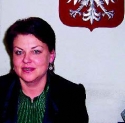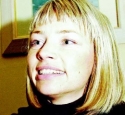


 read more
read more
 read more
read more
Chernobyl: Moving on - and remembering
Last update: Thursday, December 18, 2008, 08:31 | © Metro Éireann

A minority under siege?
Last update: Thursday, December 11, 2008, 12:49 | By: Catherine Reilly
 read more
read more
In their own words - Belarusians in Ireland
Last update: Thursday, November 27, 2008, 15:34 | By: Catherine Reilly
 read more
read more
Latest News:
01.07.2014: Know your rights: What to do about ...
01.07.2014: Letters to America: ‘The stre...
01.07.2014: Hassle-free holidays in Poland? Sad...
01.07.2014: The Hague: a city of peace and just...
01.07.2014: One of the toughest times of my lif...
01.07.2014: A letter to the Justice Minister...
01.07.2014: Egypt brings a dark day for media f...
01.07.2014: Soccer summer’s full of surp...
01.07.2014: Letters to America: ‘The stre...
01.07.2014: Hassle-free holidays in Poland? Sad...
01.07.2014: The Hague: a city of peace and just...
01.07.2014: One of the toughest times of my lif...
01.07.2014: A letter to the Justice Minister...
01.07.2014: Egypt brings a dark day for media f...
01.07.2014: Soccer summer’s full of surp...
Latest Video News:
Photo News:
Pool:
Kerry drinking and driving
How do you feel about the Kerry County Councillor\'s recent passing of legislation to allow a limited amount of drinking and driving?
How do you feel about the Kerry County Councillor\'s recent passing of legislation to allow a limited amount of drinking and driving?
0%
I agree with the passing, it is acceptable
100%
I disagree with the passing, it is too dangerous
0%
I don\'t have a strong opinion either way








